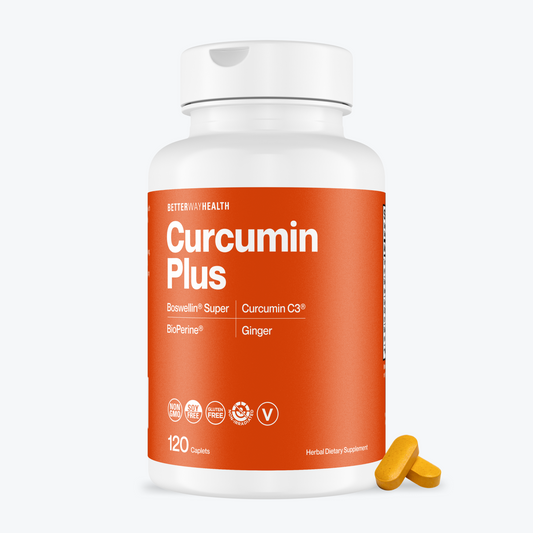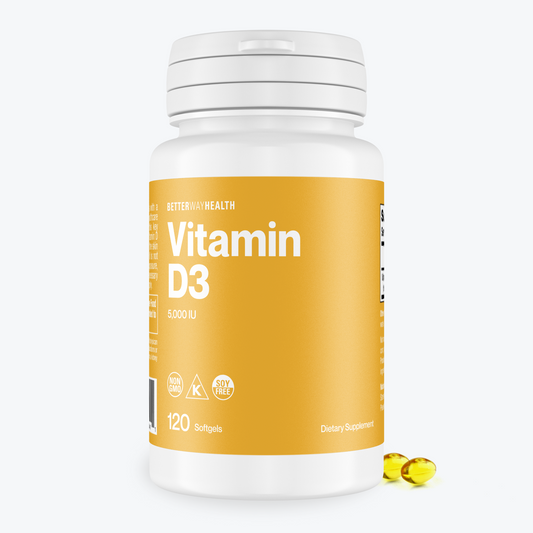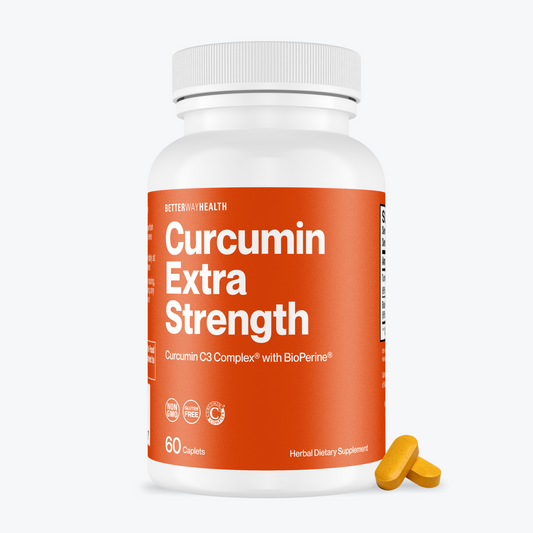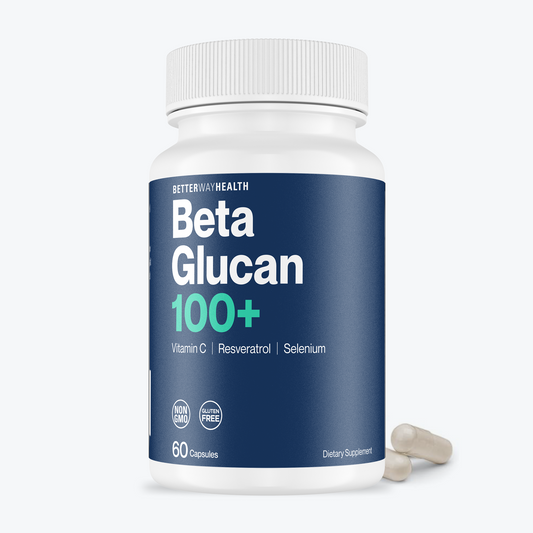Biohacking Your Body: What is it and How Does it Work?

Are you ready to unlock the ultimate potential of your body and mind?
Welcome to the world of biohacking the body—a groundbreaking approach to wellness that combines science, technology, and a bit of self-experimentation.
Vital Info
-
Biohacking is the art of transforming your body and mind through strategic lifestyle changes to enhance your overall well-being.
-
Nutrition, exercise, supplements, mindfulness, and sleep are all critical elements of the biohacking matrix.
-
Tailoring biohacking methods to fit your unique body and lifestyle yields the most effective results.
What is Biohacking?
In the simplest terms, biohacking is the pursuit of personal optimization and self-improvement.
It's an exciting domain where biology meets DIY experimentation, all designed to enhance your life's quality and longevity.
This isn't science fiction; it's an actionable science that invites you to tweak your habits, environment, and thought processes to function at your peak. (1)
At the heart of biohacking is the belief that we're not stuck with the hand we're dealt.
It's about making the most of the incredible machine that is your body by implementing small, incremental lifestyle or dietary changes that yield compounded, transformative results. (2)
Deep Dive: Practical Examples of Biohacking
Types of Biohacking
From amateurs to experts, there are different biohacking approaches to suit individual interests and goals.
Here are three primary types you might encounter:
DIY Biology
DIY Biology is for those who love to roll up their sleeves and dive into the nitty-gritty of self-experimentation.
It's a grassroots movement where individuals explore biology using the same techniques as professional scientists, often from their homes or community labs. (3)
These biohackers frequently have the urge to push their bodies to new limits out of curiosity, a passion for understanding human biology, or both.
They may experiment with genetic engineering, microbiome manipulation, or various biological tinkering methods to explore the boundaries of human life.
Going deeper: Biohacking for men's health
Nutrigenomics
Nutrigenomics is where nutrition meets genetics.
This branch of biohacking focuses on understanding how the food you eat interacts with your genes.
The goal?
To tailor your diet so precisely that it could, theoretically, help prevent disease, increase longevity, and enhance overall quality of life. (4) (5)
This type of biohacking requires an understanding of your unique genetic makeup and how it may affect your body's response to different nutrients.
By analyzing your DNA, biohackers following nutrigenomics can customize their nutritional intake to optimize health and performance. (6)
Grinder Biohacking
Grinders are biohackers who physically alter their bodies by implanting devices like microchips, magnets, or even creating new senses.
The term comes from the idea of "grinding" away at the human body's limitations to enhance abilities or add new functionalities.
A grinder biohack can range from simple NFC chip implants that allow users to open doors with a wave of a hand to more advanced experiments like designing implantable night vision devices.
Grinder biohacking may be the embodiment of the cyborg future that many have dreamed about. (7)
Science Behind Biohacking
Biohacking for the body intersects with multiple scientific disciplines, each playing a vital role in understanding and optimizing the human body.
The fusion of these branches of science not only deepens our comprehension of the body's potential but also equips us with tools to manipulate and enhance our physiological and neurological functions.
-
Genetics: Biohackers explore genetic data to understand and influence their health outcomes. With tools like DNA sequencing, individuals can tailor their lifestyles to their genetic predispositions. (8)
-
Neurology: Techniques like EEG neurofeedback and mindfulness practices help biohackers optimize brain function for improved mental clarity and emotional regulation. (9)
-
Physiology: Understanding bodily functions guides biohackers in adjusting their exercise, diet, and recovery to improve metabolic efficiency and resilience. (10)
Common Strategies to Biohack Your Body
Biohacking encompasses a myriad of strategies, each targeting different aspects of health and performance.
Here's a look at some of the most prevalent techniques that biohackers adopt to push the boundaries of their body and mind.
Sleep Optimization
Sleep is the cornerstone of recovery and rejuvenation.
Biohackers view sleep optimization as a high-impact strategy for enhancing cognitive function and physical health.
Techniques include regulating sleep patterns, creating a conducive sleep environment, and utilizing gadgets that promote restorative sleep.
From blackout curtains to white noise machines and sleep tracking devices, the goal is to maximize the quality of sleep, helping the body and brain repair and rebuild more effectively. (11)
Intermittent Fasting
Intermittent fasting (IF) is a dietary strategy that cycles between periods of fasting and eating. The focus is on when to eat rather than what to eat.
IF is purported to trigger cellular autophagy, improve metabolic flexibility, and enhance longevity.
By aligning eating patterns with the body's circadian rhythm, biohackers use intermittent fasting to fine-tune their metabolism, improve energy levels, and manage weight. (12)
Suggested Reading: Worst Food Ingredients for Your Immune System
Nootropics
Nootropics, also known as smart drugs or cognitive enhancers, are substances that can potentially improve brain function.
Biohackers use nootropics to boost memory, creativity, and motivation.
The spectrum of nootropics includes everything from caffeine and omega-3 fatty acids to synthetic compounds.
It is important to spend enough time researching effective substances that give the brain the extra edge it needs without adverse side effects. (13)
Speak with your doctor for guidance.
Gene Editing
Gene editing is one of the more advanced and controversial biohacking strategies.
Using tools like CRISPR-Cas9, biohackers explore the possibilities of editing their DNA to prevent disease or enhance certain traits.
While still in its infancy and laden with ethical considerations, gene editing represents the cutting-edge frontier where biohacking meets genetic engineering. (14)
Advanced Techniques
Advanced biohacking techniques are the experimental frontier where technology and biology meet.
These may include the use of stem cell therapies, electromagnetic field exposure, and IV nutrient therapy.
While these methods are not mainstream and often require medical supervision, they demonstrate the lengths biohackers will go to in pursuit of optimal health and performance.
However, not all aspects of biohacking have received thorough examination or approval from medical experts.
If you're venturing into this realm, proceed with caution and seek professional guidance whenever possible.
Learn More: The Ultimate Biohacking Guide for Beginners
Is Biohacking Safe?
The safety of biohacking the human body can vary depending on the individual and the type of biohack.
Fundamental habits, like improving sleep quality or tweaking diets, are widely regarded as low-risk and beneficial.
However, the terrain becomes murkier with practices such as self-administered nootropics or DIY gene editing, where risks are higher and less predictable.
The keys to safe biohacking are information and moderation.
It’s imperative to research thoroughly and, where possible, consult healthcare professionals for advice.

4 Ways You Can Biohack Your Body
Safe biohacking may improve more than your overall health.
It may also enhance specific aspects such as weight loss, blood sugar regulation, the immune system, and mental health.
Below are four expanded biohacking strategies, complete with examples of how to integrate them into your daily life.
1. Exercise
Focus on a consistent exercise routine that caters to your body composition and fitness goals.
Whether aiming for weight loss or improving cardio, a tailored approach can yield substantial health benefits:
-
High-Intensity Interval Training (HIIT): A biohack to increase heart rate and help control blood pressure.
-
Strength Training for Blood Sugar Control: Incorporate resistance training to aid glucose metabolism, helping to maintain healthy blood sugar levels.
-
Yoga for Body and Mind: Regular yoga practice can lower stress, which may reduce the risk of chronic diseases and improve mental health.
Take your biohacking further by exposing yourself to controlled extreme conditions:
-
Sauna for Detoxification: Regular sauna use can improve circulation and may aid in weight loss, heart health, and cognitive function. (15) (16)
-
Cold Water Therapy: Ice baths or cold water showers can enhance body composition over time and support mental health through the release of endorphins.
2. Mindfulness
Mindfulness practices are not only soothing for the mind but also have tangible effects on physical well-being, influencing everything from blood pressure to immune response:
-
Guided Meditation: Tune into a mindfulness podcast or app to ease into a state of deep relaxation, improving your mental health and physiological resilience.
-
Breathwork for Balance: Utilize breathing techniques to control your heart rate and reduce stress, enhancing both mental clarity and blood pressure regulation.
3. Technology
In an age where wearable technology like the Fitbit or the Apple Watch can track daily steps, heart rate, and how many calories you consume each day.
Smart devices can also help with:
- Sleep Tracking for Restoration: Devices that monitor sleep patterns can inform adjustments in your routine to combat blue light exposure, leading to better sleep and potential weight loss.
Blood Testing at Home: Regular blood work can uncover vital health markers, such as vitamin D levels or magnesium deficiencies, allowing you to tailor your nutrition for peak body health.
Explore: 17 types of biohacking technology to transform your health
4. Nutrition
What you eat determines how your body and mind function.
A biohacker diet looks at the nutritional content and timing of food for maximum effect.
For example:
-
Bulletproof Coffee for Fasting: Kickstart your day with bulletproof coffee to complement your intermittent fasting routine, potentially improving focus and facilitating weight loss.
-
Carb Cycling: Alternate your carb intake to align with your body's energy needs, optimizing fuel for workout days and managing glucose on rest days.
-
Supplements for Support: Strategic supplementation, like Omega-3s for heart health or probiotics for gut balance, can support your diet by targeting specific health conditions.
Remember, incorporating these practices should be a gradual process, allowing you to adjust based on feedback from your own body and the latest empirical evidence.
New to biohacking? How to Get Started With Biohacking: A Beginner’s Guide
The Power of Supplements for Biohacking
Supplements can be potent allies in your biohacking arsenal. They can fine-tune your biology and support specific health goals. Here’s a closer look at how some key supplements play a role in optimizing your body’s functions:
Omega-3 Fatty Acids
Omega-3 fatty acids are renowned for their role in supporting brain health and reducing inflammation throughout the body. (18)
-
Brain Function: These essential fats are crucial for maintaining brain structure and cognitive performance.
-
Heart Health: Regular intake can contribute to a healthier cardiovascular system and lower the risk of heart disease.
-
Inflammation: Omega-3s have powerful anti-inflammatory properties that can alleviate chronic inflammation, a root cause of many diseases.
Probiotics
Probiotics introduce beneficial bacteria to your digestive system, enhancing your gut health, which is a central component of your overall well-being. (19)
-
Digestive Balance: These microorganisms help maintain a healthy balance in your gut flora, crucial for digestion and nutrient absorption.
-
Immune Booster: A substantial portion of the immune system resides in the gut, making probiotics essential for robust immunity.
-
Mood Regulation: Emerging research suggests a strong link between gut health and mood, with probiotics playing a role in mental wellness. (20)
Further Reading: Biohacking for Weight Loss
Beta Glucan
Beta Glucan is a natural polysaccharide that can activate and strengthen the immune cells in the body.
It has the unique ability to change (modulate) the immune system for maximum efficiency.
The fiber-like molecule activates every immune cell in the human body, such as:
- Neutrophils
- Natural killer cells
- Basophils
- Macrophages
In turn, this helps the immune system perform as best as possible.
Glucan is available in various natural food sources, such as cereals, oats, barley, yeast, and fungi.
Additional beta glucan benefits: (21) (22)
- Beta glucan may enhance the immune cells' ability to fight off harmful germs and pathogens.*
- Due to increased immunity, your body is armed with a stronger defense against the daily challenges of life.*

Beta Glucan in Supplements
To ensure that your body is getting a sufficient amount of beta glucan each day, using a quality supplement is a wise idea.
Beta glucan can be found in the form of a natural supplement, but remember that not all supplements are made equally.
These supplements, when incorporated thoughtfully into your biohacking strategy, can offer a substantial boost to your quest for peak physical and mental performance.
We also suggest navigating through our sitemap of products, supplements, pages, and more.
Conclusion: Your Path to Biohacking Your Body
Embarking on a biohacking journey may propel you toward an enhanced version of yourself.
It combines science-backed techniques and self-experimentation aimed at the pinnacle of personal health and performance.
Better Way Health champions this transformative approach, believing deeply in the power of natural, evidence-based interventions.
With Beta Glucan and other natural solutions at our side, we're not just passive passengers in our health journey—we're the architects of our vitality.
Biohacking Your Body FAQs
What is considered biohacking?
Biohacking encompasses a variety of practices ranging from dietary changes and fasting to sleep modification and lifestyle adjustments, all aimed at enhancing one’s health and performance.
It’s a broad term that can include anything from simple dietary tweaks to more complex genetic modifications.
What is the difference between biohacking and biotechnology?
While biohacking often involves individual efforts to optimize personal health—typically through trial and error and self-experimentation—biotechnology is a field of science that manipulates biological elements to develop products and technologies for wide-ranging applications in medicine, agriculture, and industry.
How do you biohack your body?
To biohack your body, you start by assessing your current health and lifestyle, then systematically apply changes in areas such as nutrition, sleep, and physical activity.
It often involves self-monitoring through various technologies and apps to track progress and outcomes.
Why are people doing biohacking?
Individuals turn to biohacking for various reasons: to feel more energized, improve cognitive function, manage stress, prevent disease, and generally take control of their own biology.
It’s seen as a way to make personal health both a priority and a science project.
What are the risks of biohacking?
Biohacking comes with risks such as the potential for overdoing self-experiments without medical supervision, using untested or unsafe methods, or placing too much trust in unverified health trends.
It's important to approach biohacking cautiously and, ideally, with input from healthcare professionals.
(*These statements have not been evaluated by the Food and Drug Administration. This product is not intended to diagnose, treat, cure, or prevent any disease.)
Still have questions?
Our ACES Team is always there to help.









